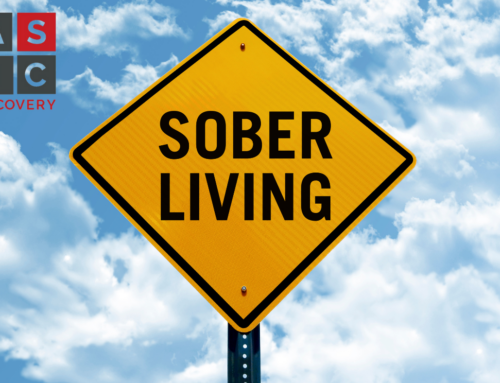Substance-induced anxiety disorder (also known as drug-induced anxiety disorder) is a condition caused by the consumption of drugs or alcohol. What’s frightening about this disorder is that it can happen after using a substance even a single time, and it’s very hard to predict who will experience it and who won’t.
That being said, the disorder is rare — only about 0.002% of people with anxiety disorders were diagnosed as being the result of substance use.
It can cause intense feelings of fear and worry as well as physical symptoms, such as a rapid heart rate, sweating, and difficulty breathing — essentially, it feels like any other anxiety disorder. Substance-induced anxiety disorder can develop suddenly or can be ongoing, depending on the person and the substance being used.
The most common substances linked to substance-induced anxiety disorder are alcohol, marijuana, cocaine, and amphetamines (including methamphetamine). However, any substance that alters mood or has the potential to be addictive can cause the disorder.
Substance-induced anxiety disorder can be difficult to recognize as the symptoms are very similar to those of an anxiety disorder that is not caused by a substance.
Make sure you talk to a doctor or mental health professional to determine the cause of your symptoms — if a substance is responsible, getting rid of the disorder might be as simple as stopping the substance as many substance-induced disorders will go away within 1 month of achieving abstinence.
Symptoms of Substance-Induced Anxiety Disorder
The symptoms of substance-induced anxiety disorder can vary depending on the substance being used and your individual response to it. Some of the most common symptoms include:
- Feelings of fear, worry, or panic
- Difficulty concentrating
- Restlessness or agitation
- Racing thoughts
- Rapid heart rate, sweating, and difficulty breathing
- Difficulty sleeping
- Irritability
Risk Factors for Substance-Induced Anxiety Disorder
There are several risk factors that can increase your risk of developing substance-induced anxiety disorder. These risk factors include:
- Age – Substance-induced anxiety disorder is more common in younger people.
- Gender – Women are more likely to develop substance-induced anxiety disorder than men.
- Family history – If a person has a family history of anxiety or other mental health conditions, they may be more likely to develop the disorder.
- Stress – People who are under a lot of stress or have experienced trauma are more likely to develop the disorder.
Of course, the major factor is using a substance — if you are addicted to any of the drugs mentioned above or abuse multiple substances regularly, you are at an increased risk of developing the disorder.
Diagnosis of Substance-Induced Anxiety Disorder
If you are experiencing the symptoms of substance-induced anxiety disorder, you need to talk to your doctor or another mental health professional. They will be able to help you determine whether your symptoms are the result of a substance-induced anxiety disorder or another medical or mental health condition.
Because the condition is so rare, it’s more likely that you have another anxiety disorder, especially given the fact that people with an anxiety disorder are 2 times as likely to develop a substance use disorder compared to the average person.
Your doctor or mental health professional will ask you questions about your symptoms, your substance use, and your family history. They may also ask you to complete a physical exam or psychological evaluation. This will help them determine if you have a substance-induced anxiety disorder or another condition.
Treatment Options for Substance-Induced Anxiety Disorder
If you are diagnosed with substance-induced anxiety disorder, there are several treatment options available that can reduce symptoms and improve your overall quality of life.
The number one treatment option is abstinence from the substance that you and your doctor believe is causing your anxiety (and ideally, from all substances). In most cases, your anxiety will go away within about a month from the point you achieve total sobriety.
If abstinence isn’t enough, common treatment options for substance-induced anxiety disorder include cognitive behavioral therapy (CBT), medication, and lifestyle changes.
CBT involves talking with a mental health professional to identify and address the underlying causes of your anxiety. This can be done in individual sessions or in group sessions.
Medication can help reduce symptoms of anxiety and may be used in combination with CBT. Commonly prescribed medications for substance-induced anxiety disorder include antidepressants and antipsychotics.
Finally, lifestyle changes can also help reduce symptoms of anxiety. These lifestyle changes can include exercise, healthy eating, reducing stress, and getting enough sleep.
Coping Strategies for Substance-Induced Anxiety
In addition to treatment options, there are several coping strategies that can help you manage your anxiety until the problematic substances are completely out of your system. These strategies include:
- Deep breathing exercises
- Progressive muscle relaxation
- Mindfulness and meditation
- Exercise
- Healthy eating
- Journaling
- Talking to a trusted friend, family member, or sponsor
For many people who struggle with substance use issues, one of the best coping strategies is to join a program like SMART Recovery or Alcoholics Anonymous.
Remember, abstinence is the primary way to get rid of substance-induced anxiety. If you’re not able to stop or moderate your use on your own, there’s nothing wrong with seeking help. These programs provide you with the resources and support necessary to stop using the drugs that are causing your anxiety.
If you’re still not able to stop or moderate your use, you might need to get the next level of treatment — IOP (Intensive Outpatient Program). IOP is popular because you’re only going to the program a few times a week and are still able to live at home and continue to work and take care of your responsibilities.
IOP at ASIC Recovery
Are you looking for substance abuse treatment in Texas?
At ASIC Recovery, our Intensive Outpatient Program (IOP) is dedicated to helping you develop healthier coping skills and build a supportive recovery network.
Click to learn more.



